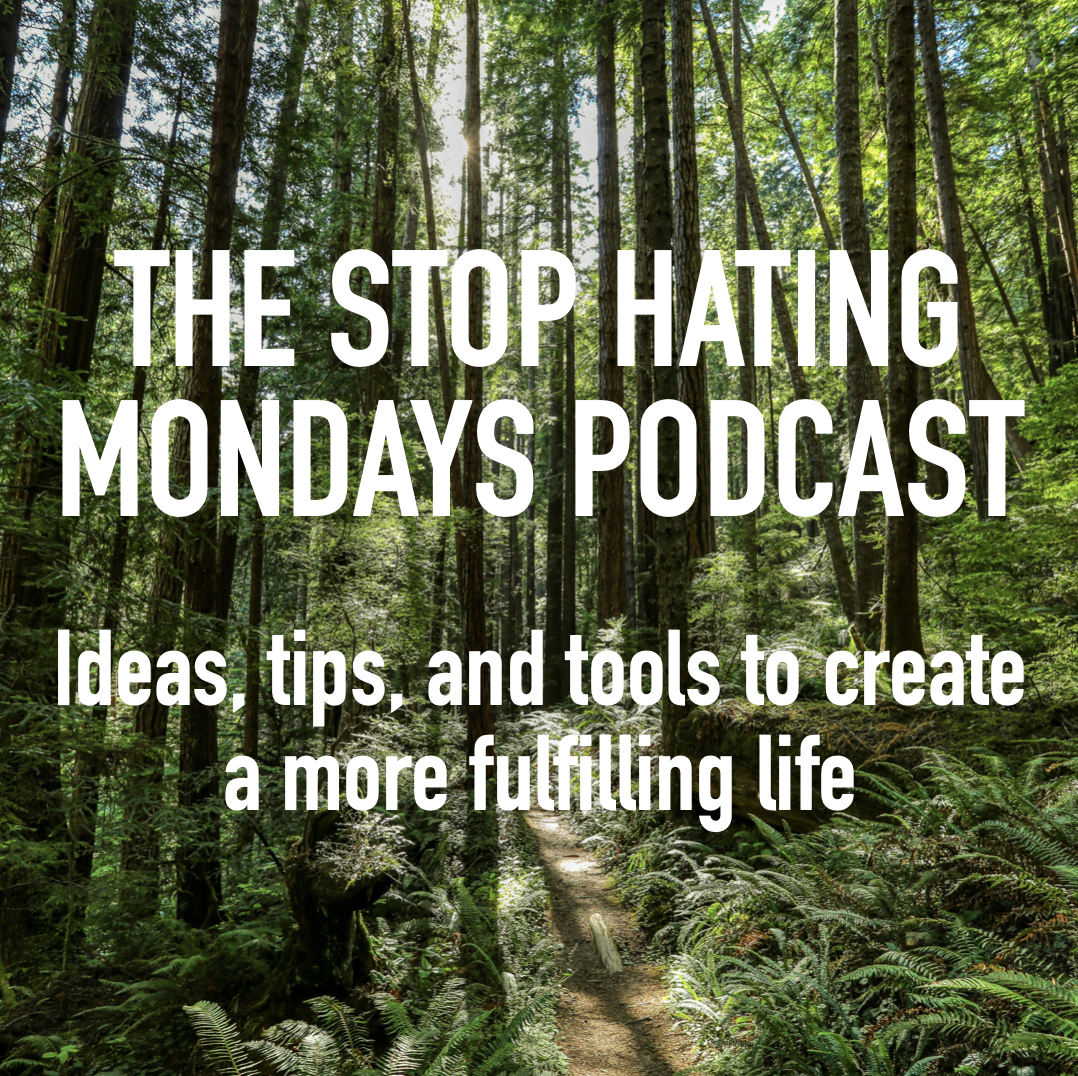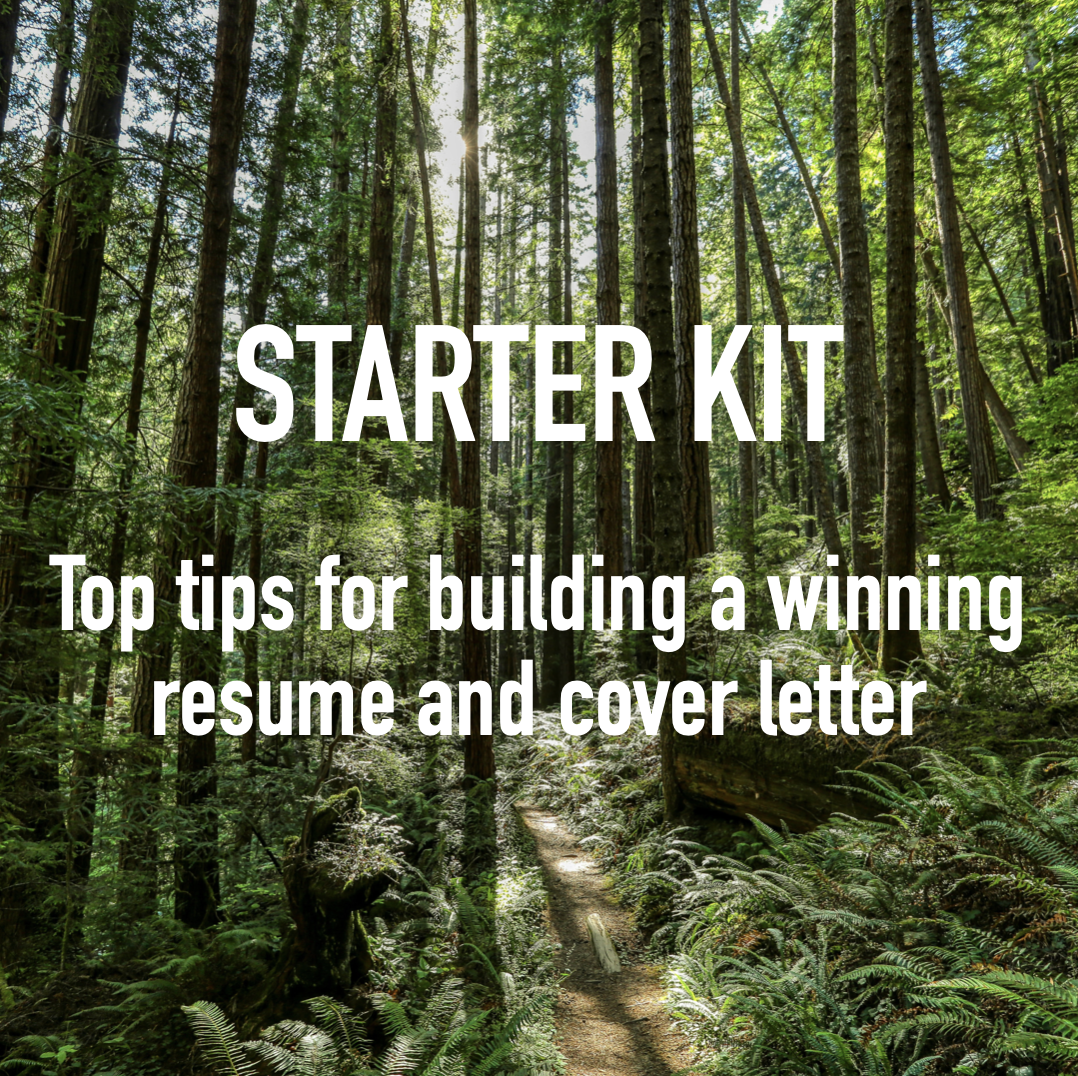How to Focus Less on Work Without Killing Your Ambition
Kent R.
You want to focus less on work, but you’re ambitious and you enjoy being successful. So you feel stuck because those seem like competing priorities.
If that sounds familiar, you’re going to love this episode of the Stop Hating Mondays Podcast. We’re talking about this common misunderstanding and how de-centering the role work plays in your life (and the role you play at work) can make you more successful and professionally fulfilled.
TRANSCRIPT
(Transcripts are auto-generated and may contain minor errors)
Caanan
You want to focus less on work, but you're ambitious and you enjoy being successful, so you feel stuck because those seem like competing priorities.
Well, if that sounds familiar, you're going to love this episode of The Stop Hating Mondays Podcast.
We're talking about this common misunderstanding and how decentering the role work plays in your life – and the role you play at work – can make you more successful and professionally fulfilled.
Caanan
All right, since we did our first episode on workism, we've got a lot of interesting questions.
Like this one from Craig. He asked, “how do I keep my ambition but remain aware of workism?”
Kent
Yeah, this is something that comes up a lot because – especially these last two years – people don't want to be working more than they already are with so many different competing priorities and challenges in our own lives and out in the world.
But yet people recognize that work is an important part of who they are, so it's all about that line.
What is work for the right reason – and effort for the right reason – and when am I just working to avoid the other roles I have in life?
Good time to remind you that if you haven't already, go back and listen to that first episode that Caanan referenced. And the other reminder is we're big believers in we all have many roles, but there's only one you and kind of the premise of our take on workism is that most people tend to fill their life – more and more so over the last decade – with their work or career role. So a lot of the people we work with, both companies and individuals, have a lot of questions about this because a lot of what we try to do in the work we do is dismantle workism. Dismantle this idea that becoming a better employee or stronger in my career will make up for everything or all the other roles in my life, so people tend to want to put a lot of effort into their career as a way of avoiding other roles.
So, the first thing I would say to Craig is, I always think of it like this… Workism is like worrying.
It takes a lot of energy and time, and it doesn't actually do anything.
Yeah, so workism is kind of doing for the sake of doing, and we can get into that a little bit, but what Craig is talking about ambition. Ambition is doing with purpose. So that's how you recognize the difference.
Caanan
Oh wait, I love that. Ambition is doing with purpose.
That's perfect.
Caanan
OK, so you said ambition is doing with purpose.
Well, how do people know when they're doing with purpose?
Kent
So you've always got to pay attention to what you're doing – and this is something that's important in every facet of your life… with every role that you play, but especially with the career and work role when.
Are you paying attention and being mindful of what you're doing, when you're doing with purpose, and when are you falling into unproductive trap?
It's interesting, in a recent podcast – I think in our last season we answered a question from a corporate listener and we talked about if employees aren't thriving, there coping. Corporations and managers tend to think that if people aren't saying anything, everything is fine. Well, in truth, if people aren't saying anything, you're likely missing cues that they're just coping.
I would say the same thing to any person asking about this. If you're not thriving or growing or putting in the right kind of work, you're likely coping, so you need that kind of awareness. When are you doing tasks that actually make sense for your work? That move your job, your team, your career forward? And when are you falling into unproductive traps?
Caanan
That's really interesting. What would you say to people that find themselves in roles where they have to do sort of meaningless work – where workism is creating a culture.
Kent
Or play certain games.
Caanan
Or play certain games. Yes.
…it's creating a culture of bureaucracy and competitiveness – unhealthy competitiveness – etc. so they have to participate in some way just to function in their role?
What would you tell those people.
Kent
One word. Awareness.
And something we talk about a lot with our clients is power dynamics.
You know so many people when we talk about our work role, we want to have full agency all the time and we want to be in charge. And it's just not the way things work.
Most people out there have managers.
There are always, what I say, power dynamics at play. So certain times you just have to sit back and say “this is a battle I can't fight,” but if you're bringing awareness – awareness brings you a certain kind of agency.
So absolutely, if you're in a typical workgroup in America, you're going to have to do a fair amount of game playing… Even if you're a freelancer, as so many people are, you have to do a fair amount of game playing because you know how the person who signs off on your paycheck likes to hear things or likes to do things and you can recognize that it's unproductive or a waste of time. So we're all going to have to participate in activities that are workism bolstering, however terrible that is, but bringing awareness is bringing power and gaining agency for you, and it ultimately helps to then scale back the amount of workism that you're experiencing in your life.
Caanan
OK, so let's see if you can answer this question quickly. Good luck with this.
How can people assess where they're at?
Kent
Yeah, quick health check.
Health check is important for insurance? Home. Health.
Health check.
So what's a health your work group? And you just ask yourself honest questions. Is my boss effective? Do I have a reasonable amount of work. Are there weird expectations of the team? Meaning are people emailing at night, emailing early in the morning?
Answer these without judgement.
Just yes or no.
Check your own ambition. Is it positive and productive or in response to an unhealthy work environment?
So once you do that health check, you know the lay of the land, then you know how to implement some of the things we've talked about earlier in this podcast to diminish workism in your life.
Remember, you have many roles, but there's only one you. Do not let the work role rule you.



